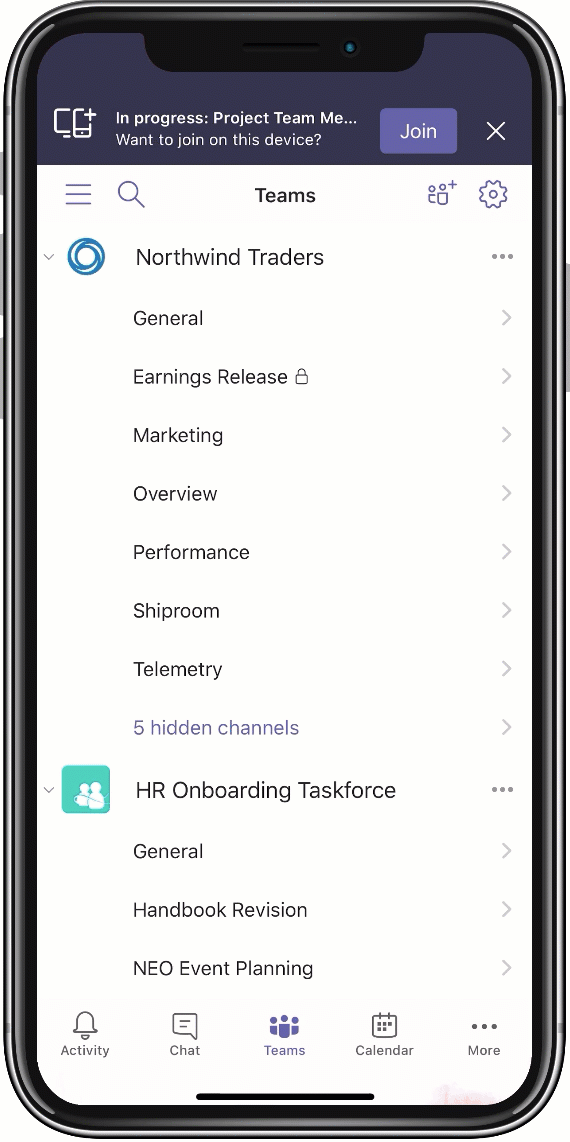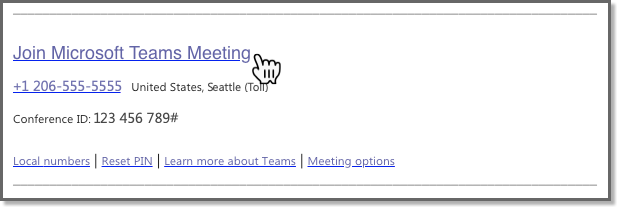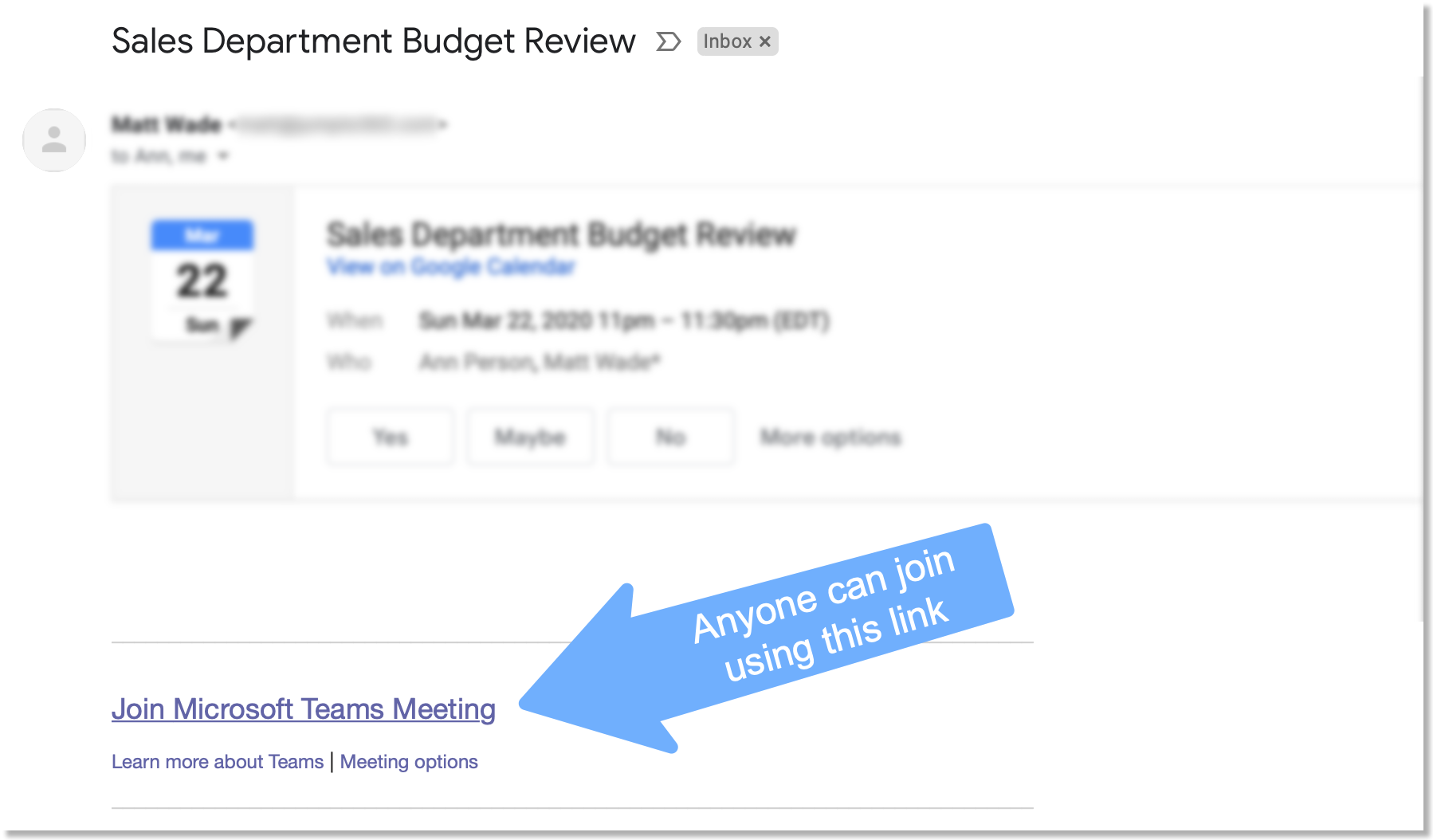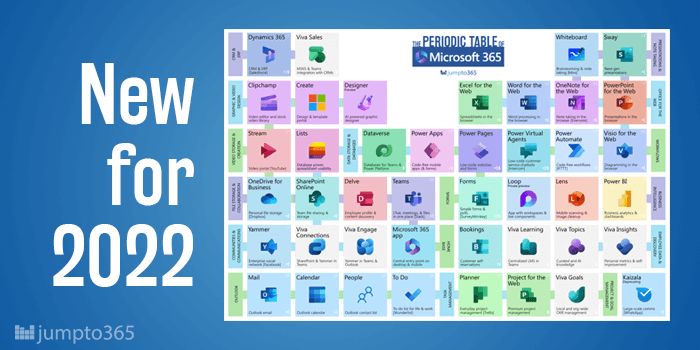Once you’ve successfully scheduled a meeting using Microsoft Teams (see my article on that), everyone needs to join the meeting if you want to get something done.
For the sake of this article, starting the meeting is the same thing as joining it. The meeting is started (for all intents and purposes) once the first person joins, even if Teams says “waiting for organizer”. Keeping things simple.
There are a few ways to join a meeting in Microsoft Teams:
- Joining from Teams on desktop or the web
- Joining from Teams on mobile
- Joining from elsewhere
- Tip: Getting someone into a meeting at the last minute
- Tip: You can reuse the Teams Join links as needed

1. Joining from Teams desktop
Your calendar in Teams and Outlook includes your meetings. If they are Teams meetings, once you click the appointment from your calendar, you’ll see a Join button in Teams and Outlook details pane.

This is a quick and easy way to join. There are other ways, but this is the most dependable, tried-and-true way to get into your meeting.
2. Joining from Teams on mobile

On mobile, your meetings will show up in your calendar in Teams. If the meeting has a Teams meeting associated with it, you’ll see a Join button right on the calendar appointment for easy access.
Also, once the meeting starts, you’ll see a notification at the top of the Teams app telling you it’s begun, complete with a Join button to get going right from there.
If you joined the meeting from the desktop but want to move to mobile, you can hand off the call to your mobile device.

3. Joining from other email services
You can join a Teams meeting from the appointment that’s sent out, regardless of the app or message service you received it in.
If you received this appointment in your Gmail, Live, iCloud, Google Apps, or any other non-Office 365 email account, you can still join and it’s super easy to do.
In the footer of each Teams appointment you’ll find a Join Microsoft Teams Meeting link along with any call-in information for joining via telephone if necessary.

If you don’t see this at the bottom of the invitation, there is not a Teams meeting associated with the invite. If that person was expecting to host their call via a Teams meeting, they’ll have to send a new appointment with the Teams information.
When you click to join, the link will open in the Teams app. If you don’t have the Teams app, it’ll open in the web version of Teams. It should work fine in Microsoft Edge and Google Chrome (Firefox and Safari support on the way); no need for downloading a plug-in!
Tip: Getting someone into a meeting at the last minute

Here’s an important tip: if someone has an issue getting into the meeting or they lose the link, all you have to do is copy the URL associated with the Join Microsoft Teams Meeting link in the invite (Right click + Copy Shortcut/Link) and send the link to anyone that needs it (e.g., paste into an email or IM).
Tip: You can reuse these links in a pinch
If you’re having trouble with another meeting, another conferencing tool, or even just a phone call, you can copy the URL associated with the Join Microsoft Teams Meeting of any meeting you’ve scheduled before, share the link, and get everyone together on that call.
Each time you schedule a meeting and the Join link is added to the bottom of the invite, it’s a unique meeting instance specific to you or the person who scheduled the meeting. The unique instance doesn’t go away and doesn’t get re-used. So you can use it in a situation where you have no other quick options to get someone in a meeting.
You can even use one meeting instance as a go-to “meet with me” link if you have a lot of interaction with customers, partners, or other clients, almost like it’s a reserved conference bridge line for you.
Wrap up
Joining a meeting in Teams is actually quite easy; there are just a few nuances that can’t hurt to know. Teams meetings come with some cool new features, so make the most of them as you meet remotely with your colleagues and peers.
For some more information about making the most of Microsoft Teams, check out my etiquette guide, linked below. Comment on this article with questions or best practices of your own!
And for a crash course on using Teams on a day-to-day basis, you should check out my tips and tricks video. Open it in YouTube and expand the video description for a table of contents that will allow you to jump around to the topic(s) you care about most.





Obviously you have an opinion, so share it!